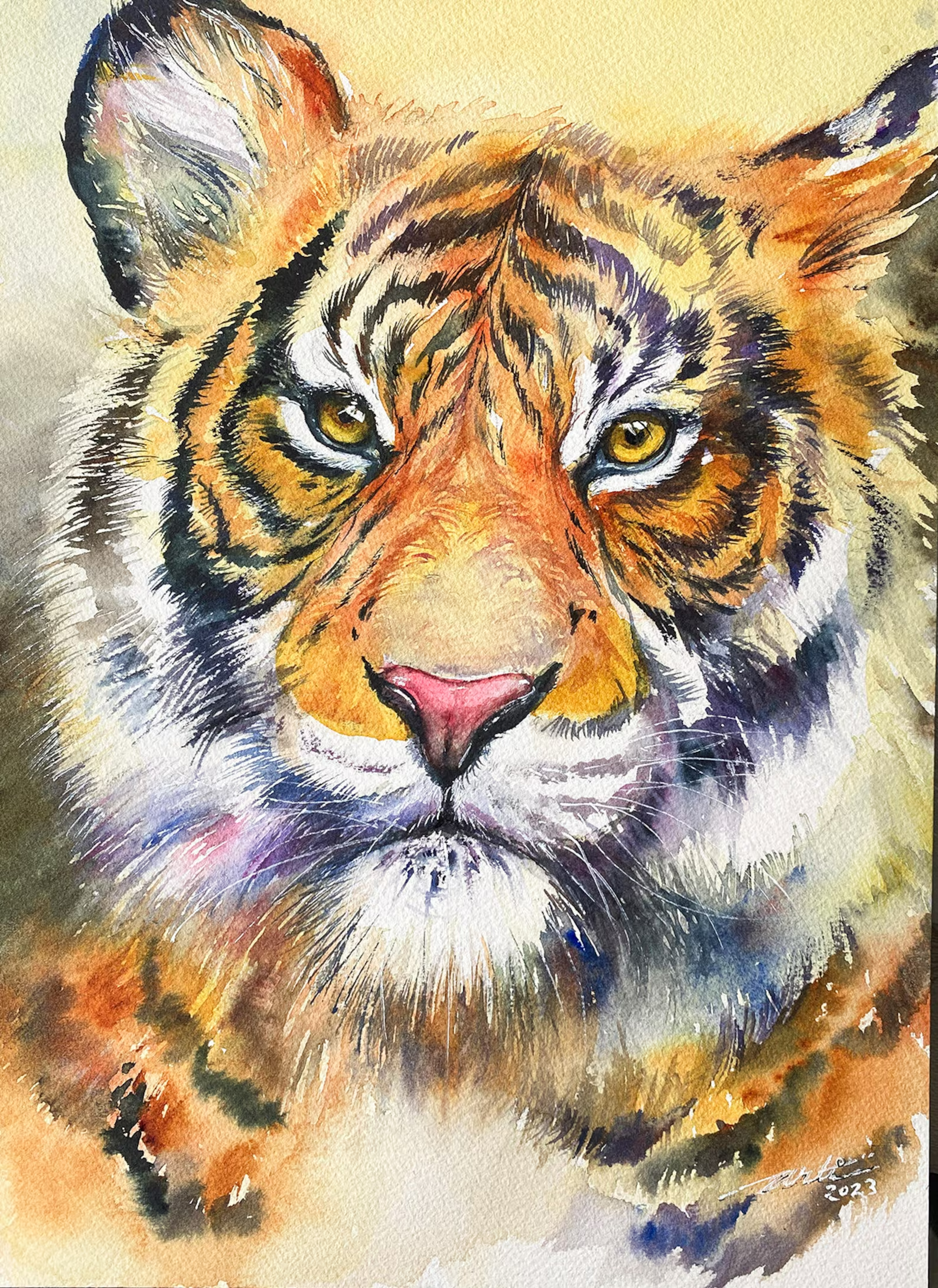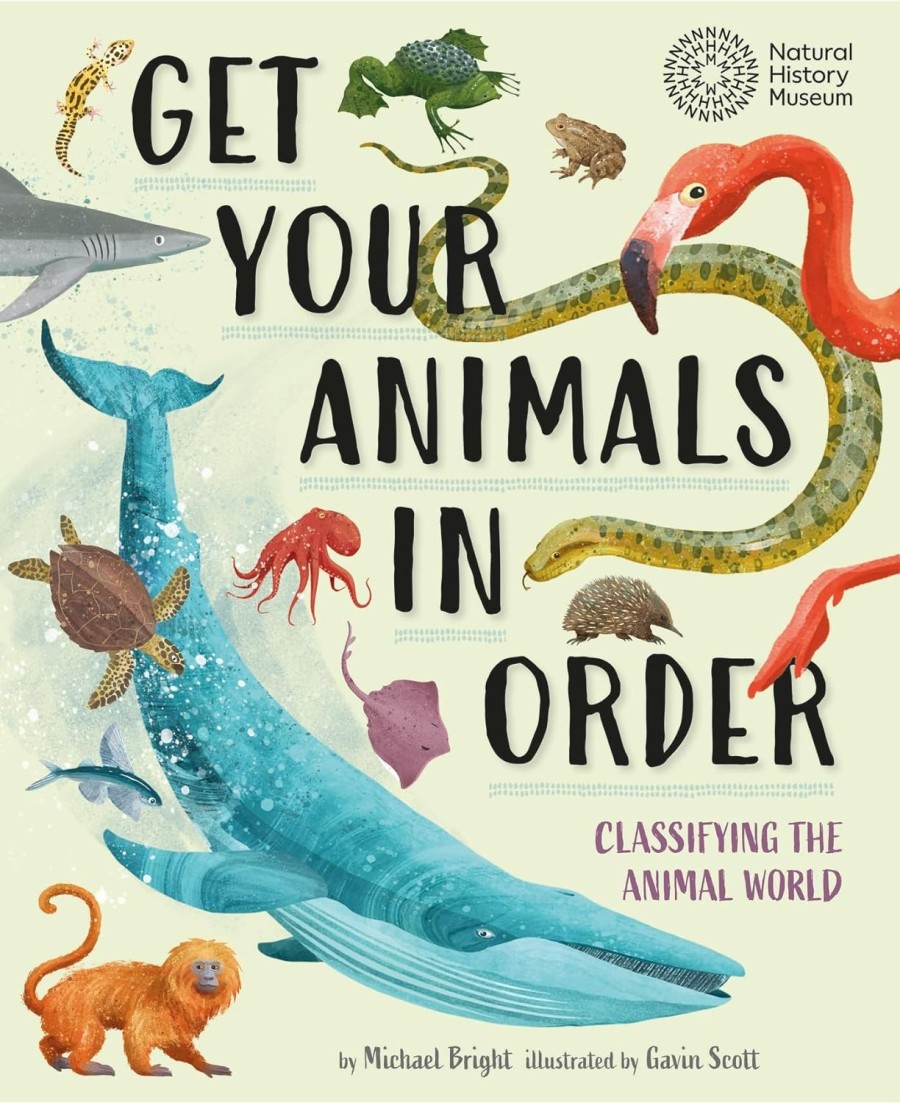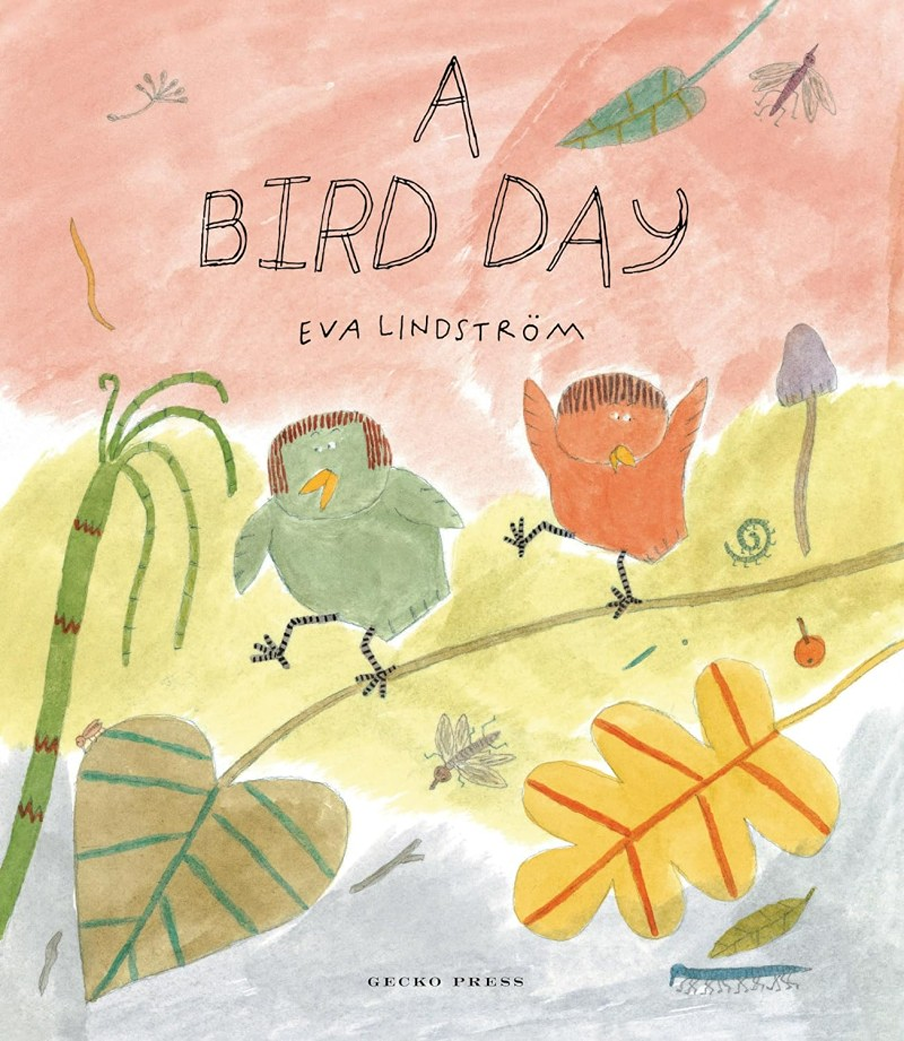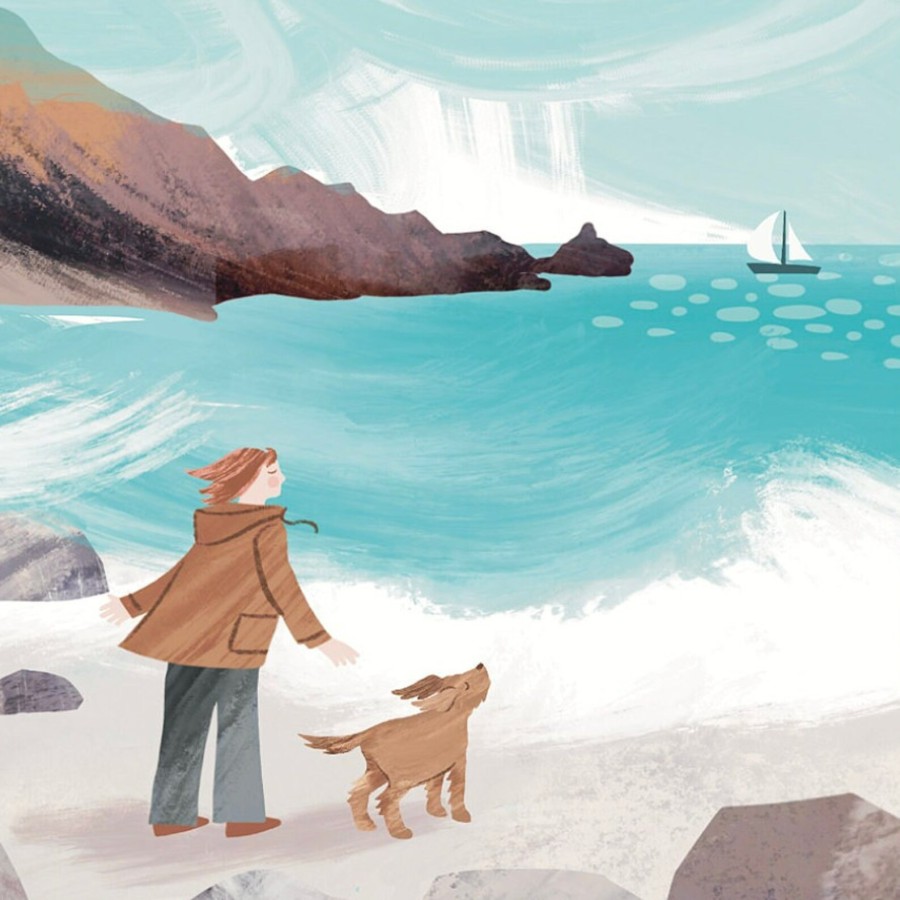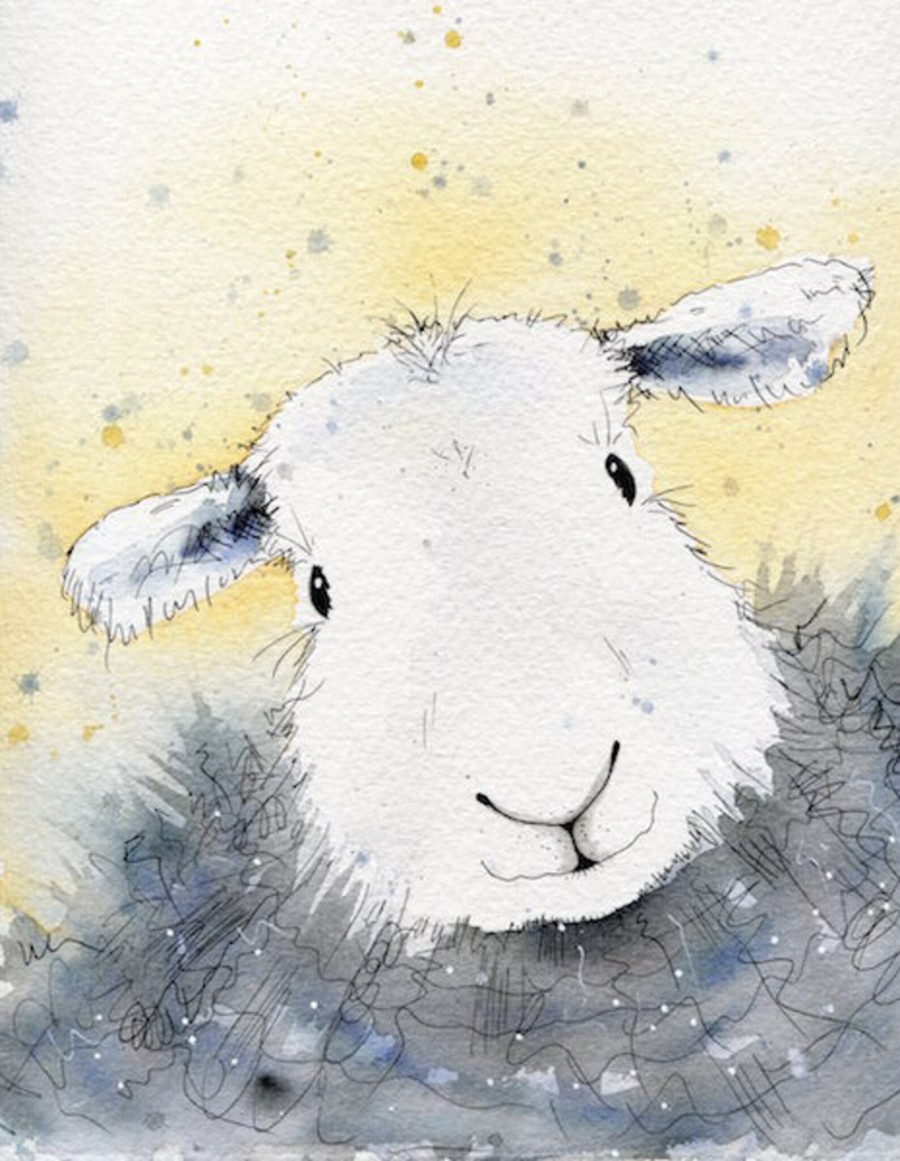
England has millions of sheep (Cumbria has 6 times more sheep than people – 3 million of them!) Sheep are not stupid at all, they are intelligent amusing creatures that can recognise up to 50 people for up to 2 years, and know when you are smiling at them! Having said that, it’s good to leave them alone if you see any on your walks, as they spook easily and this can even cause them to miscarry.
Like goats, sheep have rectangular vision so they can usually see you coming (as long as they don’t overgrown wool around their eyes) and as an animal vulnerable to all kinds of prey, they are always on alert for predators. They have an excellent sense of smell (they even have scent glands in front of their eyes and in their hooves, to communicate to each other). They also have excellent hearing – each lamb recognises his or her mum by her bleat, in the midst of a field of hundreds of even thousands of other sheep).
One breed is Herdwick sheep, suited to the climate in isolated Cumbrian Fells, and counted by farmers using the yan-tan-tethera method, a kind of rhyme that uses rounds of 20 (also used in ancient times to count knitting stitches!)
always follow the Countryside Code
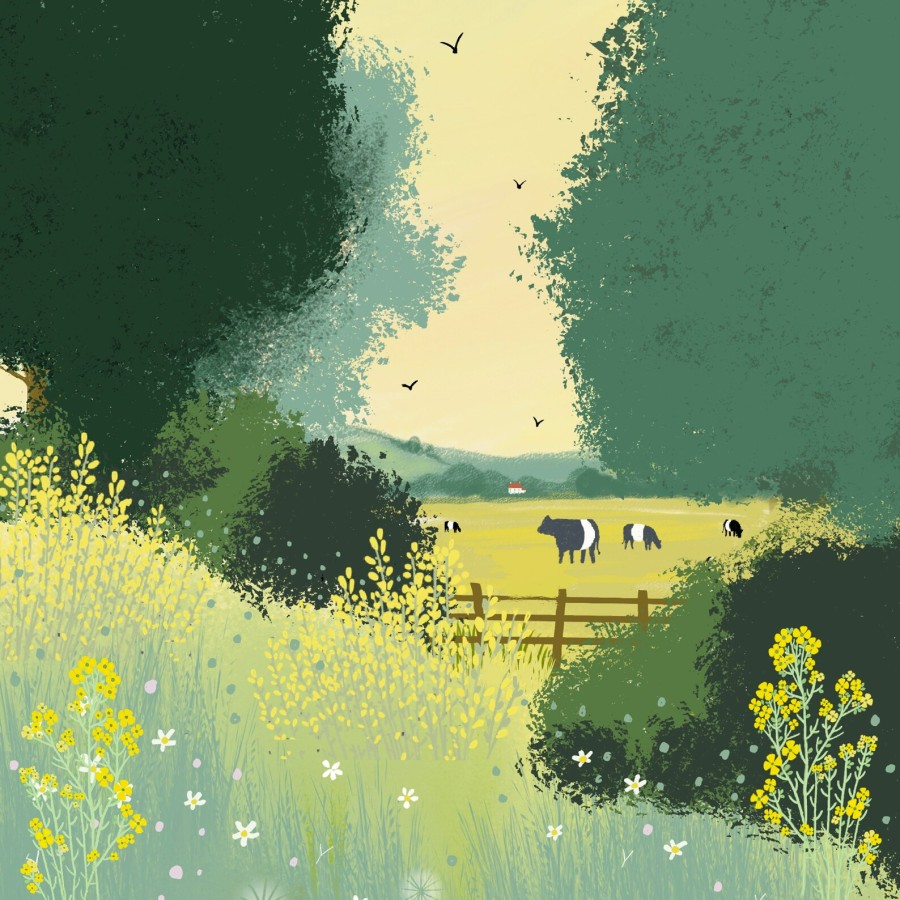
Although humans and dogs enjoy countryside walks, it’s really important to follow the Countryside Code, which mostly uses common sense, in order to keep you both (and all livestock safe).
Report concerns of farm animals in the first instance (most will be thankful you did). If you can’t find them (or have no joy communicating regards concerns, call RSPCA (or Crimestoppers if you wish to remain anonymous).
- Follow local signs, and keep to marked paths
- Leave gates & property as you find them and do not block access.
- Follow farmer advice if animals are being moved.
- Do not touch or feed livestock (or horses).
- Do not touch farm machinery.
- Keep dogs under control and in sight, and pick up the poop. Put dogs on leads on Open Access land (a legal requirement between 1 March and 31 July). This is for your dog’s safety too, as farmers can legally shoot dogs that worry sheep.
vegan alternatives to winter woollies!
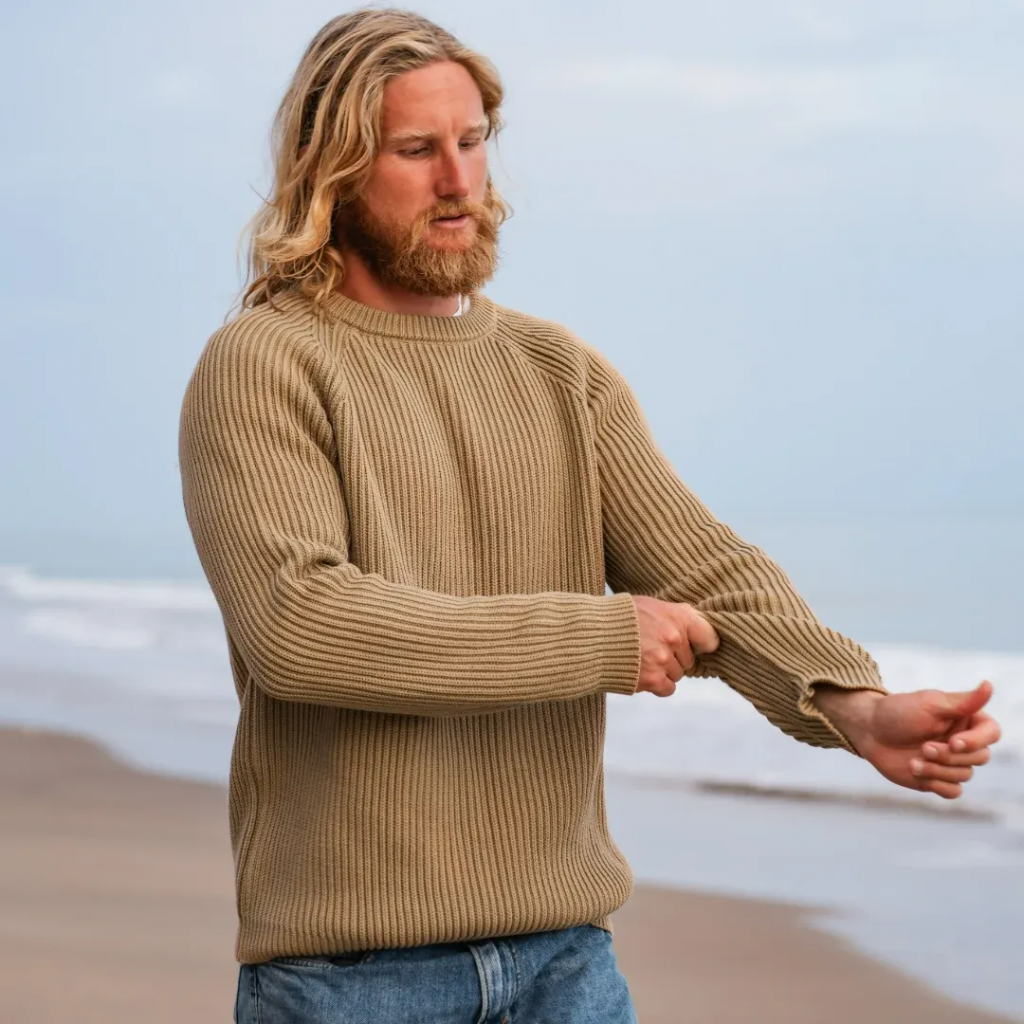
Sheep do need shearing, otherwise they can’t see predators, they over-heat and can fall over in the rain. If you find a sheep on its back, learn how to right it up or it will die (and stay with it until the rain has drained away).
Having said that, the conventional wool industry has many issues. Some sheep are sheared too early (leading to hypothermia) and others suffer ‘mulesling’ (having chunks of skin sliced away to prevent flystrike, without painkillers). And many sheep are killed, when they get older (and their wool production slows down).
Learn more on vegan alternatives to winter woollies! You can today find warm organic cotton and hemp jumpers that are just as warm as wool. And keeping warm is often more a case of layering clothes and having good circulation, through healthy lifestyles. Rather than buying thick wool jumpers. The same post has information on warm beanie hats, without wool.
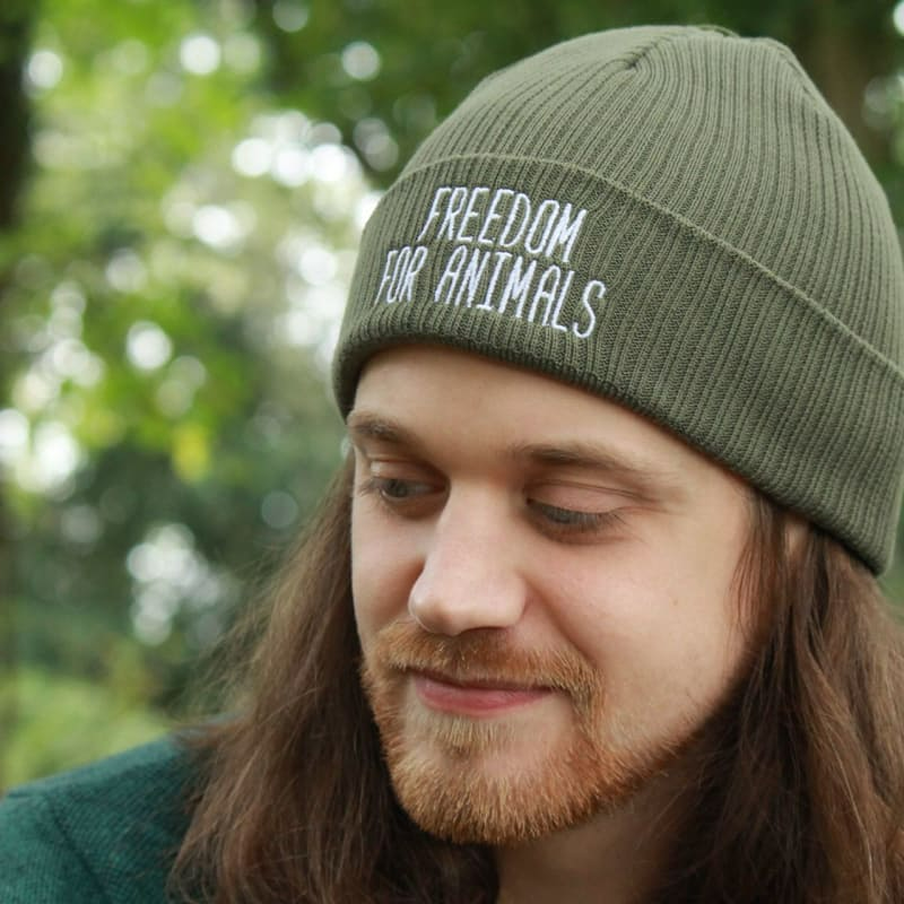
how to help our fabulous farm sanctuaries
Farm sanctuaries are very different to ‘city farms’ in that they are usually run on a shoestring by volunteers who have given a safe haven to animals abandoned or abused in the farming industry. Read of ways to help farm sanctuaries. One Devon farmer was driving sheep to the abattoir but it all got too much ‘‘I couldn’t cope anymore’. So he turned direction and drove them to their new home at Goodheart Animal Sanctuaries.
Like goats, sheep are ruminants who graze on foraged grasses, plants or dried grass hay (although some like alfalfa can increase risk of urinary blockage in neutered male sheep so should be avoided). They also are very sensitive to copper so must only be fed mineral formulas designed for sheep (very different to goats). Open Sanctuary has lots of good information on keeping sheep, older sheep and has tips to create enriching environments for happy sheep!
All farm sanctuaries run a shoestring, yet their needs are pretty simple – land, water, feed, hay and a bit of extra help when the weather is bad (causes lack of feed or more help to deal with muddy weather). Here are just a few of the many super sheep sanctuaries that you may wish to support. You can donate direct or give via Charities Aid Foundation (tick the box to donate anonymously).
- Sheep Sanctuary (Yorkshire) gives sanctuary to sheep and hundreds of other animals. Non-stop rain has put their funds in jeopardy, as they have had to buy lots of rubber matting to avoid sheep wading through mud.
- Fleecehaven Sheep Sanctuary (Devon) is home to over 120 retired and rescued sheep, each one now offered a permanent loving home. Many have arrived having suffered significant neglect.
- Baah-land (Worcestershire) offers home to over 100 animals including sheep. Some look like teddy bears, and another looks like a rabbit so is called Bugsy! Funfords Mini Farm is another local sanctuary with over 300 animals offered sanctuary.
- Sheep Ahoy (Kent) is a small animal rescue founded by a mother and daughter, after the first rescue of an orphaned lamb.
- Brockswood (West Midlands) has sheep from very different backgrounds and breeds, now all happy with their very different personalities.
- Holly View Animal Sanctuary (Sussex) has many residents including abandoned lambs and sheep given to them, after people lost leased land.
- The Farm Animal Sanctuary (Worcestershire) was founded by a woman who witnessed the reality of livestock markets selling sick, malnourished and frightened animals, and now offers a haven to live lives in comfort.
- Surge Sanctuary (The Midlands) is home to many rescued animals. One sheep resident was rescued at just 10 weeks, days before he was due to be killed for someone’s Eastern lunch. He’s super-friendly, loves posing in front of the camera and loves the sun! Co-founded by the well-known animal welfare campaigner Earthling Ed, the easiest way to help if you live in London is to enjoy a vegan burger at Unity Diner, as all profits support the sanctuary!
- Woolly Patch Sheep Sanctuary (Wales) is also worth a mention. Just over the border, it offers sanctuary to a country that bases a lot of its food on eating lamb. And Scotland’s Tribe Sanctuary does similar work.
welfare issues in the sheep industry
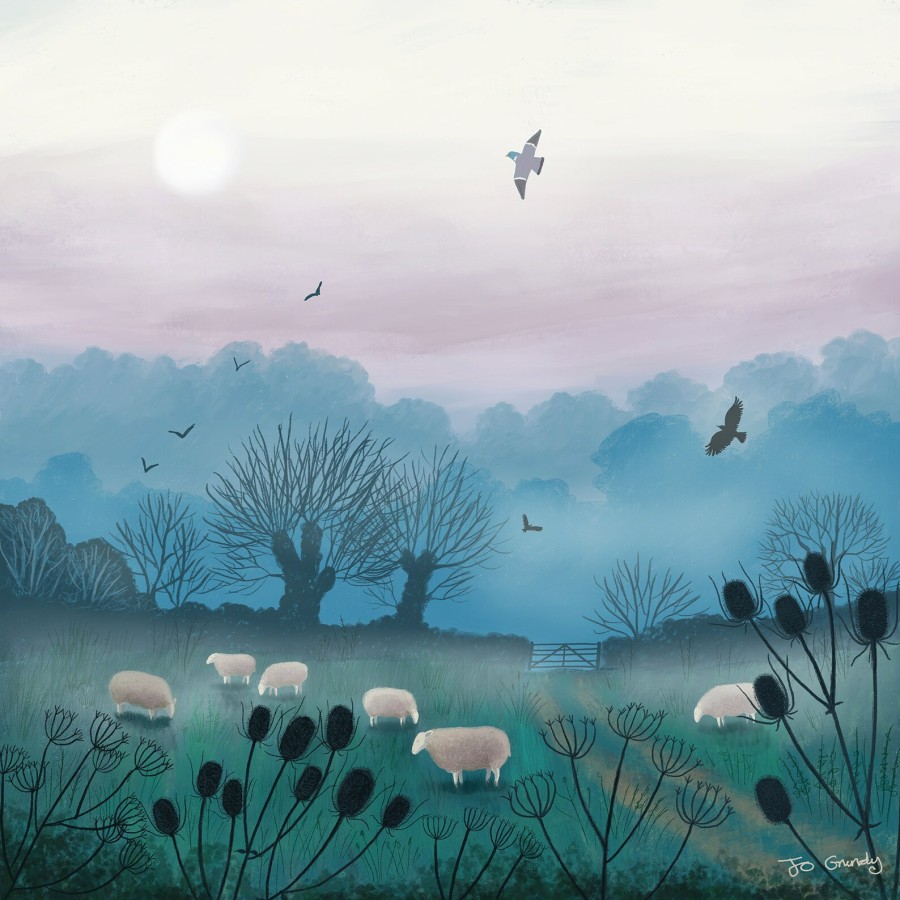
Good Hearted Animal Sanctuaries (another sanctuary that rescues sheep) has lots of information on the sheep farming industry to educate.
Most sheep are farmed outdoors, but often over-bred to produce two or more lambs (in nature, multiple births are rare) to meet demands for Easter lamb. Many ewes miscarry or lambs die early due to disease/exposure. Having this many sheep at one time in a field also means farmers have a constant battle (due to English wet weather) with foot scald (inflammation from droppings/soil bacteria) or the more serious foot rot (the hoof starts to die). Most sheep get one or the other (farmers spray the feet, but it’s a never-ending battle).
The other main disease is fly strike (maggots caused by blowflies laying eggs in fleece), which leaves near-fatal open wounds. Some sheep farmers practice mulesing (slicing away chunks of skin without painkillers) which is why ‘ethical wool companies’ have website statements that they only buy wool from farmers who do not use this practice.
As mentioned above, sheep do need shearing. But good sheep farmers (and sheep sanctuaries) pay shearers per hour (not by sheep) to ensure the job is done properly. Sheep not sheared properly can catch pneumonia.
Then there is the emotive issue of religious slaughter (without stunning) which happens mostly to older sheep (due to there not being much of a market for mutton in England). Welfare experts at Compassion in World Farming says animals do suffer, and want it banned. It’s fine for Muslims (and Jews) to be plant-based (like Prince Khaled bin alwaleed who invests heavily in vegan companies). Read more on plant-based Middle Eastern recipe books.
The law is also a mess. CIWF say that in fact, many meats sold as Halal are stunned (so not compliant anyway) and they want such meat only sold in certain stores. Yet many supermarkets now sell it (and don’t label it) so people often unwittingly buy Halal meat, when they don’t want it.
And many ‘stunned sheep’ suffer the same fate, when electrical stunning fails. And hundreds of thousands of sheep are exported live in cramped lorries (only receiving water and rest after 14 hours if the law is upheld) with many dead of thirst or heat exhaustion on arrival). It does now hopefully appear that the Animal Welfare (Livestock Exports) Bill introduced into Parliament in 2023 means a ban (with exports of cattle and pigs) will soon be law.
help for sheep & their shepherds
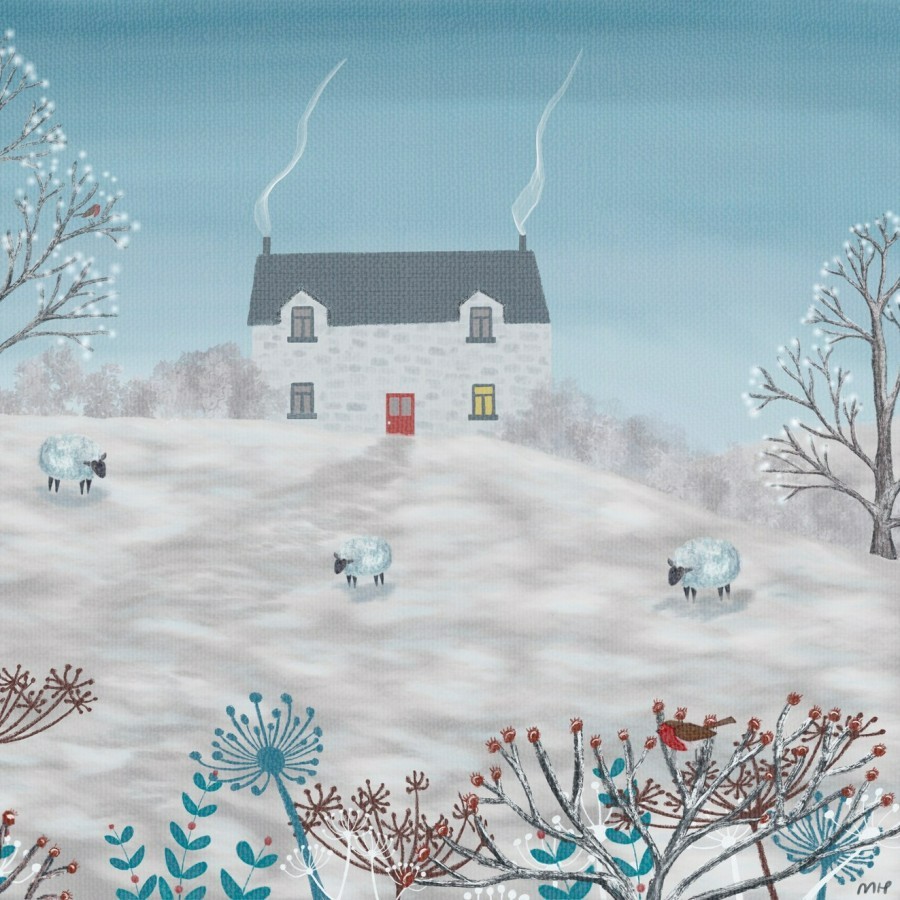
- Sheepeasy is a smart little invention to make it easier to look after feet of sheep, goats and alpacas. Developed by an engineer, it’s ideal for foot care, while keeping sheep calm. Sold in 3 sizes, just hook onto a fence, hurdle or gate (it’s mobile and easy to carry). Find info on preventing/treating footrot at Sheep Veterinary Society and Homeopathy at Wellie Level (courses endorsed by vets).
- Mudcontrol is recommended by farmers to stop having to sink concrete into your land, to avoid muddy fields. Safer for animals and humans, it can help turn dangerous muddy ground into safe paths.
- The Transfarmation Project can help with setting animal farmers up with free feed and advice to grow hugely profitable oats (used increasingly for milk in coffee shops). In many cases this can save your long-cherished family farm, and let existing animals live out lives in peace.
- The Farming Community Network is an umbrella of charities that have helplines for struggling farmers. From providing free feed to livestock to help with finances and tenancy.

